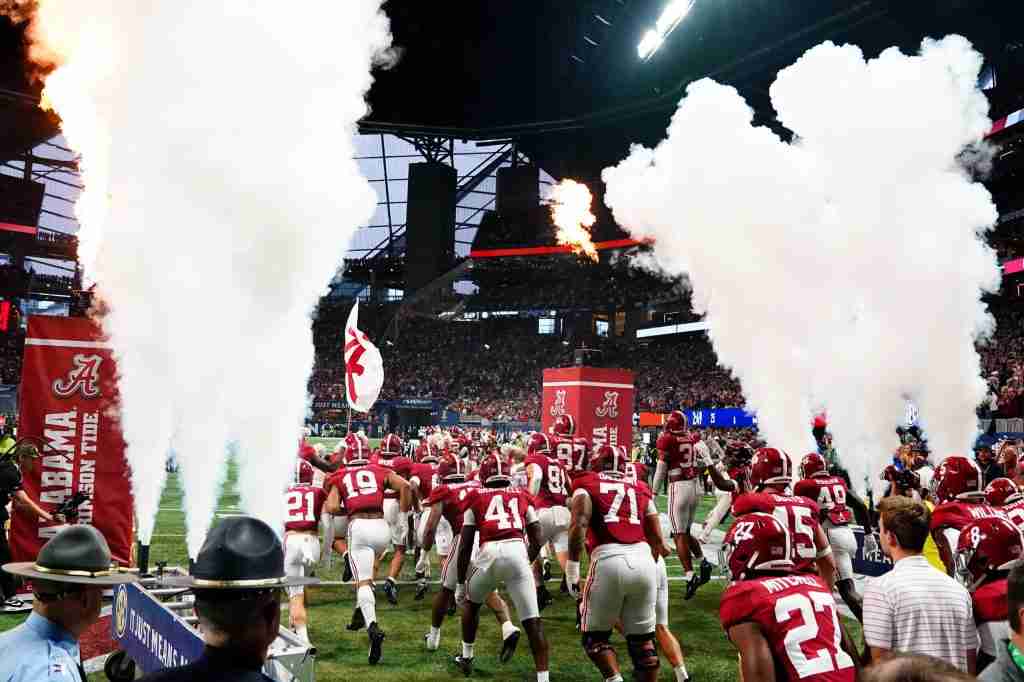LAS VEGAS– Charlie Baker, president of the NCAA has taken a step to start the conversation about athlete compensation.
Today, he seeks to start the conversation that will shape the future of college sports.
“This is a conversation we need to have. It’s a conversation that people in Division I and the NCAA want to have,” Baker said Wednesday. “Now we actually have to have it and do something with it.”
On Tuesday morning, Baker sent a letter to NCAA members outlining a number of recommendations based on a listening tour he conducted during his first three months as president of the organization.
In this context, Baker recommended a system of direct compensation from schools to athletes. Under a new subdivision, members would be required to invest at least $30,000 per year per athlete for each of the school’s eligible athletes in an “educational trust fund.”
“Some will say I’m going too far. Some people will say I didn’t go far enough,” Baker said.

GO FURTHER
NCAA’s Charlie Baker calls for new subdivision with zero direct payments to athletes
Members of the new subdivision who met these requirements could agree to their own rules regarding name, image and likeness, purse limits, roster sizes, and any other number of issues that arose, giving them more great autonomy to govern itself with schools more aligned in terms of resources and mission.
“We’re trying to support a big tent approach but, as you saw yesterday with Charlie’s memo, there’s a new reality here,” SEC Commissioner Greg Sankey said.
College sports is facing needed reforms, and Sankey outlined five areas where change will need to be addressed: the courts, Congress, state legislatures, conferences and the NCAA.
Under Baker’s proposal, schools could enter into NIL agreements directly with athletes, which is currently not allowed. This would bring much of the NIL space under university control, rather than the current system in which many efforts are outsourced to third-party organizations called collectives.
Big 12 commissioner Brett Yormark praised Baker’s leadership.
“It was a preventative and very proactive moment,” he said. “Charlie is leading us through a very transformative moment and I think we need to embrace his vision and his energy and do it thoughtfully.”
Several athletic directors raised eyebrows at Baker’s letter containing little warning or comment on details before it was sent to members.
Sankey said the commissioners did not receive the letter and that he received it as a transmission from his legal counsel. He expressed frustration over questions about a letter he had not yet seen.
“Why wasn’t our board involved in this conversation sooner? ” he said. “We were all a little behind the rest of the world.”
The most frequent phrase from Las Vegas administrators this week for the National Football Foundation’s College Football Hall of Fame inductions and the Sports Business Journal’s Intercollegiate Athletics Forum was “conversation starter.” .
Several athletic directors appreciated that Baker took a coherent — albeit small — step toward a possible solution to the existential problems that have frequently landed the NCAA and its members in court more than ever.
“What we are doing now is not sustainable. I think everyone realizes that. So how can we get to a better place and open up this dialogue to have real conversations? » said Sun Belt Commissioner Keith Gill. “This conversation needs to happen. We need to create a structure that is sustainable and does not require us to appear in court every six months with a new case that could overwhelm the judgments. So it’s very important to have this conversation.
(Photo: John David Mercer / USA Today)
